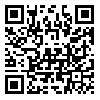Fri, Feb 20, 2026
[Archive]
Volume 38, Issue 1 (1-2024)
Med J Islam Repub Iran 2024 |
Back to browse issues page
Download citation:
BibTeX | RIS | EndNote | Medlars | ProCite | Reference Manager | RefWorks
Send citation to:



BibTeX | RIS | EndNote | Medlars | ProCite | Reference Manager | RefWorks
Send citation to:
Damari B, Amir Esmaili M R, Rafiee N, Hajebi A. Who Are the Stakeholders in Promoting Mental Health?. Med J Islam Repub Iran 2024; 38 (1) :481-491
URL: http://mjiri.iums.ac.ir/article-1-7811-en.html
URL: http://mjiri.iums.ac.ir/article-1-7811-en.html
Isfahan University of Medical Sciences, Isfahan, Iran , noorarafiee@ymail.com
Abstract: (1383 Views)
Background: It is now confirmed that mental health promotion policies need innovations beyond the scope of the health sector. In this study, an attempt was made to identify the most effective stakeholders of the public sector in the field of mental health promotion in Iran to help the policy-makers and to encourage inter-sectoral collaboration and further involvement of these effective sectors in mental health promotion plans.
Methods: This was a mixed-methods study. From the first step (literature review and a survey), the names of public agencies affected by mental health promotion were extracted. In the next step, a checklist for identifying the main stakeholders was developed. The data of this step were analyzed by the simple additive weighting method. Ultimately, a table was plotted in the form of institutional mapping in order to summarize the organizations affecting each risk factor of mental health promotion.
Results: The Islamic Consultative Assembly, the Ministry of Interior, the Islamic Republic of Iran Broadcasting, the Ministry of Cooperatives, Labor, and Social Welfare, and the Ministry of Education were identified as the five institutions with the greatest impacts on the social determinants of mental health in Iran.
Conclusion: Significant impacts can be exerted by institutions such as the Islamic Consultative Assembly (as the legislator), the Ministry of Interior, and its subsidiary entities such as municipalities and governors (as the administrators of homeland security and support for safe and appropriate urban and local facilities), the Islamic Republic of Iran Broadcasting (as the national media), the Ministry of Cooperatives, Labor, and Social Welfare (as the institution in charge of employment, job security, and social welfare), and the Ministry of Education (as the educational institution of the country).
Methods: This was a mixed-methods study. From the first step (literature review and a survey), the names of public agencies affected by mental health promotion were extracted. In the next step, a checklist for identifying the main stakeholders was developed. The data of this step were analyzed by the simple additive weighting method. Ultimately, a table was plotted in the form of institutional mapping in order to summarize the organizations affecting each risk factor of mental health promotion.
Results: The Islamic Consultative Assembly, the Ministry of Interior, the Islamic Republic of Iran Broadcasting, the Ministry of Cooperatives, Labor, and Social Welfare, and the Ministry of Education were identified as the five institutions with the greatest impacts on the social determinants of mental health in Iran.
Conclusion: Significant impacts can be exerted by institutions such as the Islamic Consultative Assembly (as the legislator), the Ministry of Interior, and its subsidiary entities such as municipalities and governors (as the administrators of homeland security and support for safe and appropriate urban and local facilities), the Islamic Republic of Iran Broadcasting (as the national media), the Ministry of Cooperatives, Labor, and Social Welfare (as the institution in charge of employment, job security, and social welfare), and the Ministry of Education (as the educational institution of the country).
Type of Study: Original Research |
Subject:
Public Administration & Health management and economics
Send email to the article author
| Rights and permissions | |
 |
This work is licensed under a Creative Commons Attribution-NonCommercial 4.0 International License. |








